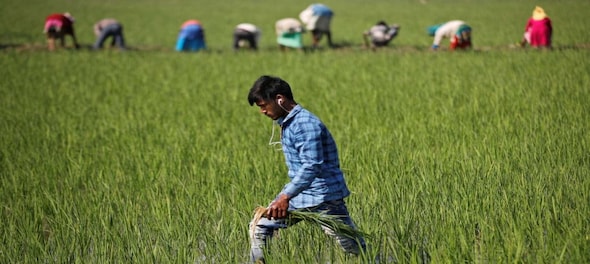
The Union Budget imposed an Agriculture Infrastructure and Development Cess (AIDC) of Rs 2.5 per litre on petrol and Rs 4 per litre on diesel. This has created a lot of unease among state governments, as they see their share of tax revenues dwindle from the central kitty. In fact, agri infra cess has been the buzzword since Finance Minister Nirmala Sitharaman presented the Union Budget, with everybody wondering if the imposed cess will impact their pockets.
What is agri cess?
The Agriculture Infrastructure and Development Cess (AIDC) is a tax that the government imposes on the commercial production of agricultural produce. The rate charged depends on the production capacity. The money that the government will collect through this cess is used for infrastructure development in agriculture across the country.
To put it in simple words, the government needs funds to develop infrastructure and carry out various projects. The government collects these funds from commercial productions around the country in the form of tax or cess.
Do people have to pay more?
Don’t worry! The imposition of AIDC does not mean things will become costlier, Sitharaman told in her speech that “while applying this cess, we have taken care not to put additional burden on consumers on most items”. She added that the higher cess will be adjusted with lower customs duty.
Why are states unhappy?
States are unhappy with the agriculture infrastructure cess because their revenues are likely to take a hit due to the restructuring of taxes announced in the Budget. Sitharaman said that there was an urgent need to improve agricultural infrastructure, which “will ensure enhanced remuneration for farmers”.
As the burden is not on consumers, the cess will not raise the cost of products. Instead, as Sitharaman mentioned, the impact will be offset by an equivalent or more reduction in the import duty. So, for states, the rearrangement will mean that they will receive less money from central coffers, as central excise and customs duties is divided between the Centre and the states according to a formula devised by the Finance Commission.
The AIDC came into effect on February 2. Apart from fuel, the cess has been placed on alcoholic beverages, gold, silver, crude soybean, and a few other commodities.
For example, to accommodate the new cess of Rs 2.5 a litre on petroleum, the Centre has cut the basic excise duty on petrol from Rs 2.98 to Rs 1.4. Similarly, for diesel, the basic excise has been cut from Rs 4.83 to Rs 1.8 a litre.
Likewise, for alcohol, to negate the impact of 100 percent cess, the corresponding basic customs duty was reduced from 150 percent to 50 percent. As a result, the net effective rate of import duties remained at 150 percent.
On the day of the Budget, Sumaira Abidi, deputy editor at CNBC-TV18, in a tweet, citing a “clarification from Dolat Cap”, stated: “Imported AlcoBev (scotch, wine etc) used to attract 150% basic customs duty. In the current budget, customs duty cut to 50%+new agri cess @ 100%. So, overall duty unchanged at 150%. Net net - no impact! (sic)”
CESS ON ALCOHOL - Here's the clarification from Dolat Cap
— Sumaira Abidi (@SumairaAbidi) February 1, 2021
Imported AlcoBev (scotch, wine etc) used to attract 150% basic customs duty. In current budget, customs duty cut to 50%+new agri cess @ 100%. So, overall duty unchanged at 150%. Net net - no impact! #Enjoy #Budget2021
So, basically, while consumers will continuing paying the same or lower price for all these commodities on which cess has been placed, states will lose out on their share of customs revenues.
(Edited by : Priyanka Rathi)
Check out our in-depth Market Coverage, Business News & get real-time Stock Market Updates on CNBC-TV18. Also, Watch our channels CNBC-TV18, CNBC Awaaz and CNBC Bajar Live on-the-go!


Lok Sabha elections 2024: From Wayanad to Shivamogga, key battles in the second phase
Apr 25, 2024 2:01 PM
EC probes allegations of MCC violation by Modi, Rahul; seeks response by April 29
Apr 25, 2024 1:32 PM
LS polls phase 2: Rahul Gandhi, Shashi Tharoor in fray; Hema Malini, Om Birla eyeing hat-trick
Apr 25, 2024 12:19 PM
UP constituencies to witness three-cornered fight in second phase tomorrow
Apr 25, 2024 10:47 AM

